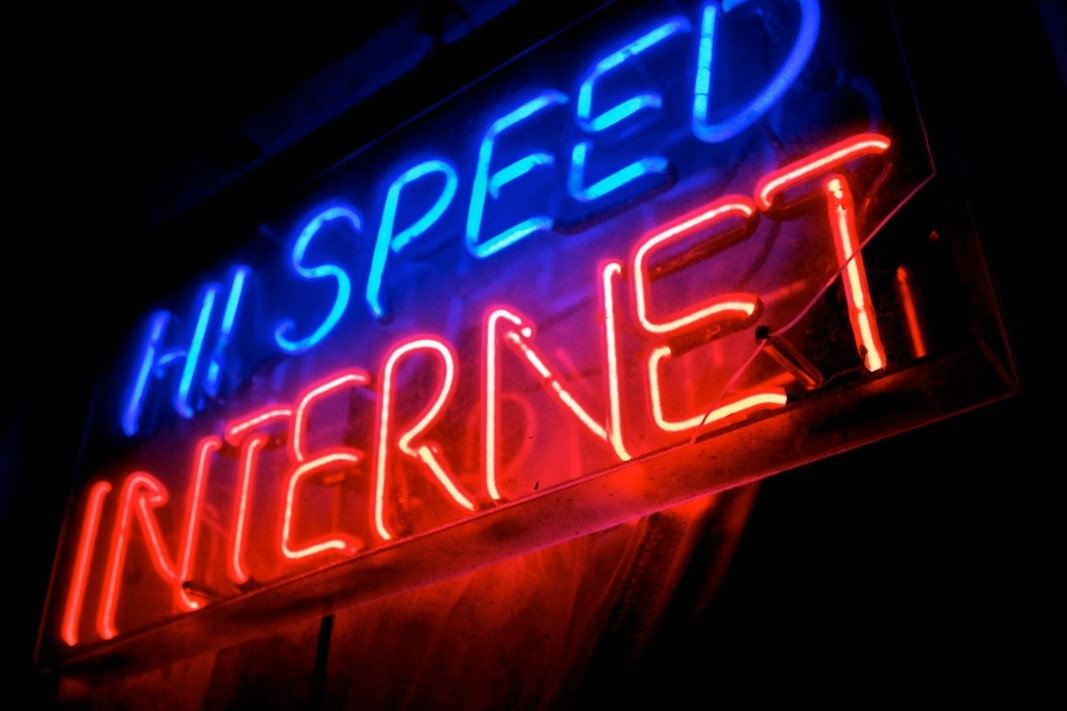Do Internet Speed Tests Really Work?

It happens to everyone. You click on the icon to open your web browser, and it seems to take forever. You remember what that last service tech you spoke to said, “Reset your router.”
While that is generally the best solution to your loading problem, that may not always be the root issue. There are many causes for a slower speed, from an overworked modem or router to a clogged cache or routine connection issues.
The first step? After cycling your router and clear your cache. Then, if you still have issues, the best plan is to run a speed test to narrow down where the issue lies.
But, do speed tests really work the way they say they do? Are they accurate in determining if there is an issue with my internet connection? Keep reading to find out.
What is Internet Speed?
When you sign up with an internet service provider one of the primary promises they make is a fast connection. Most advertise their download and upload speeds as 10Mbps/5Mbps. Mbps equals Megabits per second. Generally, you will see the download number larger than the upload. So, in this example, your connection should offer 10 Megabits per second download speed and 5 Megabits per second upload speed. The speed you need will be determined by what you intend to do on the Internet.
Over time, this speed can be affected by many factors. As stated earlier, a router’s memory, your system cache, and connectivity issues all contribute to a slower connection. Of course, the higher the speed, the more costly your plan becomes. And you want to be sure you are getting your money’s worth, this can warrant a speed test when the internet highway becomes congested.
What is a Speed Test?
Speed tests are used to determine if the speed you are receiving equals the speed you signed up for. All speed tests send what are called packets to your computer. Then, they return those packets to the source. The time it takes to communicate that information to your computer is your download speed, and the time it takes to get them back is your upload speed.
There are several tests on the market; some require software on your system, while others run the test without you having to download anything. Almost all speed tests are free of charge, but there is a handful that does require a fee or subscription.
But keep in mind: this does not mean they are better, but they can offer additional services that can help you clean up your system of the issues causing your slow down. These additional services can range from registry cleaners to antispyware software.
Java/Flash Required Tests

Some speed tests are based on JavaScript or Adobe Flash parameters. Think interactive video game websites with tons of video or sites with an animated character waving at you from the bottom corner of the screen.
While heavy Flash or JavaScript sites are fun to use, they require a LOT more speed to operate. Also, if you do not have these installed on your device, then you will not be able to run the test without having to download these programs. This can make these sites bulky to deal with and reliable internet speed even more important.
HTML5
These tests are run from the internet. Generally, from your service provider. They are the best determiners of what your speed is. They would best suit you because the test is provided by your internet provider, they can better help you resolve connectivity issues if it with the wiring, system, or servers on their end.
What do Speed Tests Really Tell You?

Most speed tests are accurate. They tell you exactly what you can and cannot do with your connection. Obviously, you cannot complain about speed issues if you subscribe to a low Mbps plan – especially if you regularly use a gaming system or stream high-quality movies or television.
You get what you pay for. But when you are genuinely experiencing issues, investigating your actual connection speed can give you grounds to bring a grievance to your ISP.
The GiGStreem Difference
Most internet companies give you a plethora of options for Internet. While the numbers may seem meaningless to you, they matter a lot depending on what you want to do with your internet.
If you are a general surfer or plan on only using it to communicate with family by email or social media, then you don’t need much speed behind your system. However, if you plan on using video services like Skype or playing online video games, then you want a super-fast connection. This is where GiGstreem makes a difference.
Most company’s upload/download speeds will vary. This can cause the sluggish issues you experience with other providers. With GiGstreem, your upload/download speeds are symmetrical. If you want to get a symmetrical plan from the competitor, you will pay a higher fee.
With GiGstreem, you get access to symmetrical speeds across all of our residential and business packages. Symmetrical speeds also offer lower latency, which is the time it takes between your mouse click and the final action.
Final Thoughts
Other reasons may slow your Internet service. One of these reasons you will only notice during certain times of the day or even month. Usually around the end of a billing cycle. This process is called Internet throttling. It is when the internet company deliberately slows speeds. This can occur when you come close to reaching your maximum contracted data usage cap or during peak hours when the most traffic is online.
Either way, it is not fun to experience – especially when you have a work deadline approaching or are in the middle of a movie or gaming marathon.
This is another benefit of GiGstreem. With us, you do not have to worry about Internet throttling. Our packages do not have caps so you will never hit a maximum data point. We also use our own lines for service – we do not share their bandwidth with other companies.
So, we will not have to deal with the frustration of slower speeds due to heavy traffic hours.
You may need to run a speed test now and then to determine an internal issue, but with GiGstreem, you will have the confidence of super-fast internet experience.